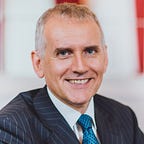A brief update on Soros Economic Development Fund’s initial response to the global Covid-19 pandemic
23rd March 2020
Like everyone on the planet right now, we at the Soros Economic Development Fund (SEDF) are working as quickly as possible on our response to the huge range of threats posed by the COVID-19 pandemic. These threats include the existential risk to the global economy and to the companies and funds in which we have invested, not to mention negative impacts on all the people who work with us and for us. Our response to this crisis is grounded in our identity as the impact investment arm of the Open Society Foundations, where we invest in funds and enterprises that promote economic justice, equity, and open societies.
More than anything we are aware of our need to listen, learn and rapidly adapt. Today’s response will surely seem to have been inadequate tomorrow as the true implications of this become clearer, and so we commit to refining and developing our response as the crisis unfolds.
At this time, our primary goals are to support our people and our portfolio, and to seek out new investments that will help the world address this global public health emergency.
Supporting our people
SEDF will ensure that the entirety of our staff and those of our portfolio companies have access to the best information on COVID-19 in order to keep their management, staff and clients safe, for their own wellbeing and to limit the spread of the disease. We are all dealing with anxiety, grief, and real logistical challenges. We will do what is possible to look after our own staff and those who work in our investee companies.
Supporting the current portfolio
Portfolio companies are at risk from both the virus itself and from the damage it is doing to markets, production and supply chains globally. We are:
- analyzing our portfolio of companies to understand their resilience in the face of this crisis;
- ensuring that we and the companies have a clear picture of run-room (in terms of days, months, and years) and available cash;
- assisting management teams to assess where there is scope to improve efficiencies without undermining the well-being of staff;
- encouraging companies to revisit their succession plans to cope with vacancies due to quarantine and illness;
- recommending that companies call board meetings to review these issues urgently and adjust their business plans where necessary;
- considering the provision of bridging finance or follow-on investments to portfolio companies where required and on appropriate terms.
Funds in which we have invested may face the risk of slower deployment of capital and lower returns on their investments as a consequence of this crisis, some may find the opposite of course and see increased opportunities to have impact and ways of deploying their capital. There is also the possibility of LP defaults as they deal with their own capital management challenges. What is clear is that there is significant uncertainty, and a number of scenarios that may, in turn, affect the sustainability of some management teams. SEDF is considering what it is willing and able to do to assist the management teams weather this crisis, by funding capital calls or through other supportive steps. As with our support to portfolio companies, any support will depend on careful due diligence and assessment of the causes and nature of the need.
Developing our pipeline
SEDF will continue to look for new investments that align with our purpose, which includes furthering the Open Society Foundations’ goal of social and economic justice, particularly where it complements the work of one of Open Society’s programs. We believe it is crucial that catalytic impact investors stay the course as investment capital becomes scarce in the risk-off environment of the pandemic. This will require us to conduct remote due diligence and to improve collaboration with local partners.
Responding to the pandemic
SEDF has mobilised a small internal investment team to look for opportunities where impact investments will be a suitable and timely response to the COVID-19 crisis. The priority areas for response are testing, developing vaccines and treatment, and the deployment of infrastructure for health services, including telemedicine. We recognise that much of this work requires government intervention or grant funding by foundations. However, we are ready to engage where working capital facilities, flexible debt for rapid expansion, or concessional project finance can make a crucial difference to finding or rolling out ways of mitigating the effects of the virus or of future pandemics and expanding access to medicines for all.
Collaboration
Impact investors have the privilege and the responsibility to work in a field where, even at the best of times, competition has little place and collaboration should be the norm. Sadly, this is not always the case. The very worst excesses of the investment industry have already been on display with the surfacing of instances of opportunism and profiteering.
This is a moment for us to rise to the best of what we aspire the impact investment movement to be about and for us to find better ways to selflessly collaborate. SEDF is working with our colleagues and peers in other foundations and funds, as well as with the leading industry network bodies, to find ways to co-ordinate the sharing of dealflow, information, and ideas, and to collaborate to deploy capital in response to this challenge.
In the context of the growing health and economic crisis, and as commercially-minded capital retreats, we urge other impact investors to indicate their willingness to continue investing in this increasingly difficult environment.
by Sean Hinton (CEO); Catherine Cax (Director of Investments); Kate Murphy (Investment Principal)
